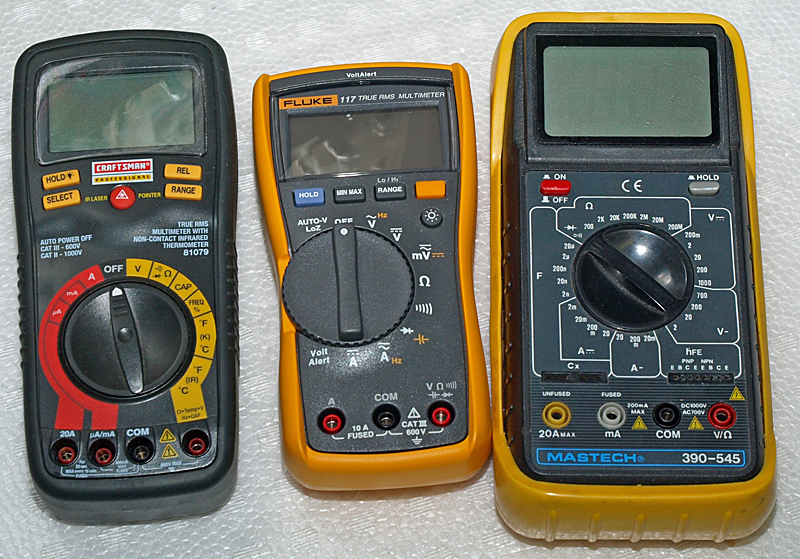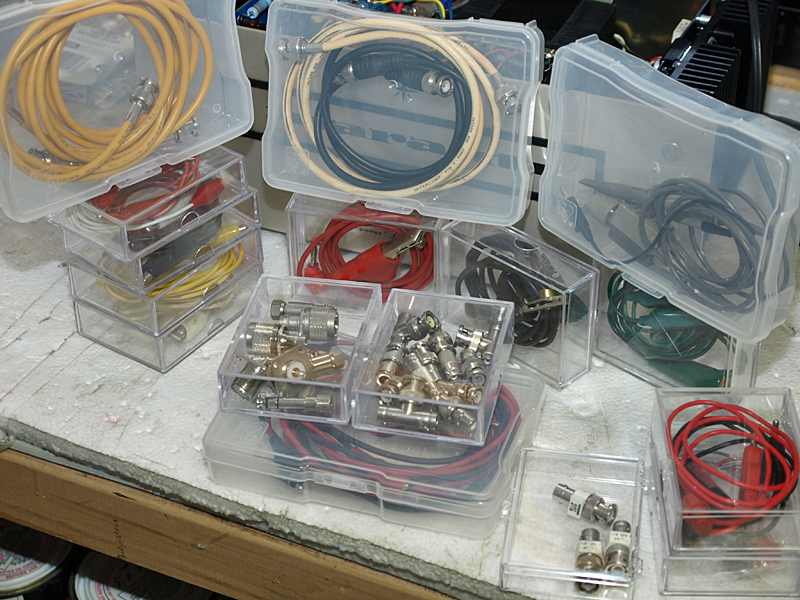
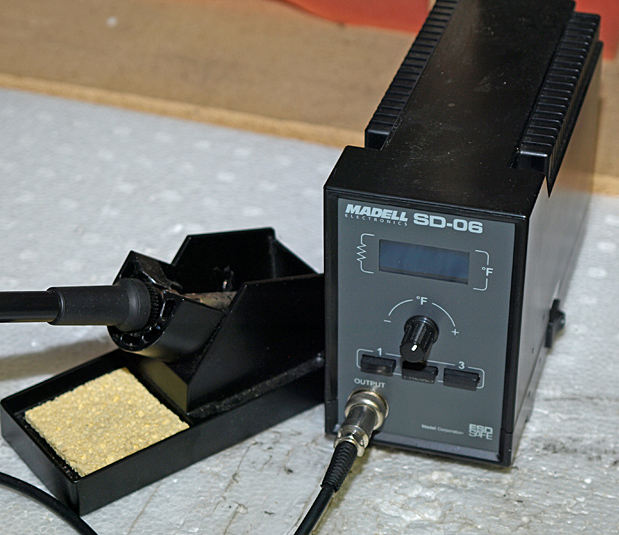
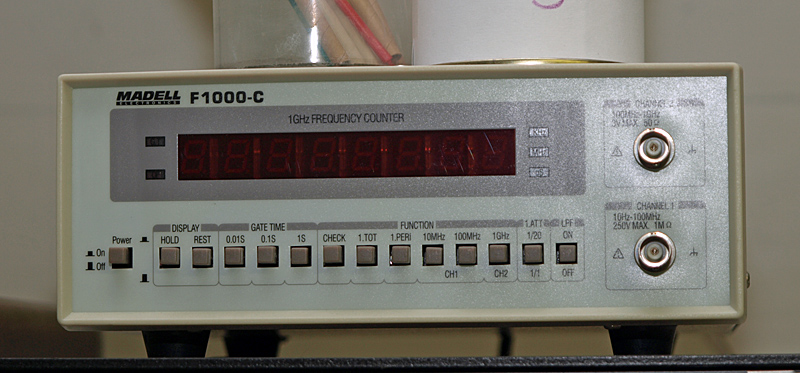
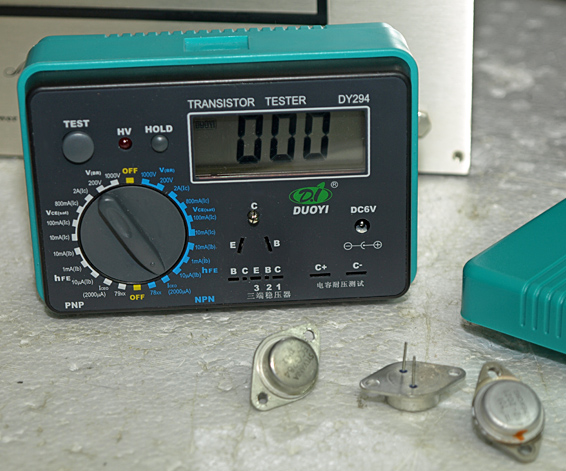
Above:
Test leads and connectors, I have lots of these and use them
all the time.
There are BNC cables, and RG cables for test equipment,
Alligator clips, RCA adaptors, impedance matchers, test
probes, baluns, etc.. This is about half of my test cable
collections.
Right:
More cables. speaker wire, RCA cables, antenna baluns,
specialized test cables, etc...
Test leads and connectors, I have lots of these and use them
all the time.
There are BNC cables, and RG cables for test equipment,
Alligator clips, RCA adaptors, impedance matchers, test
probes, baluns, etc.. This is about half of my test cable
collections.
Right:
More cables. speaker wire, RCA cables, antenna baluns,
specialized test cables, etc...

Of course we all know we need one of these. The
soldering station, along with the DMM is perhaps
the most basic pieces of equipment for working
on electronics. This is an inexpensive unit, but it
gives me fairly accurate control of temperature.
I have several pieces of equipment from this
company. This is an off-shore manufacture that
produces a large variety of commercial and
industrial equipment. They have distributors
here in the US. I am always cautious about
imported gear, but I have had good luck with
items from this company. Price seems right for
those on a budget.
Below:
I have several DMMs. You need at least one of
these to work on vintage gear.
The Fluke... I love this DMM. It is fast, has a lot of
functions the others don't have, and it's compact.
The Mastech has been a real work horse. It has a
handy transistor tester feature. Its not a bad
instrument at all... It is a little bulky, but works
well.
The Craftsman... well, it does not get much use. It
works ok, but it's the slowest of the bunch. I
think I was just used to my other units and the
fluke is hard to beat, so I just never reach for
this one. This one has a handy infrared
thermometer. I use this features once in a while.
soldering station, along with the DMM is perhaps
the most basic pieces of equipment for working
on electronics. This is an inexpensive unit, but it
gives me fairly accurate control of temperature.
I have several pieces of equipment from this
company. This is an off-shore manufacture that
produces a large variety of commercial and
industrial equipment. They have distributors
here in the US. I am always cautious about
imported gear, but I have had good luck with
items from this company. Price seems right for
those on a budget.
Below:
I have several DMMs. You need at least one of
these to work on vintage gear.
The Fluke... I love this DMM. It is fast, has a lot of
functions the others don't have, and it's compact.
The Mastech has been a real work horse. It has a
handy transistor tester feature. Its not a bad
instrument at all... It is a little bulky, but works
well.
The Craftsman... well, it does not get much use. It
works ok, but it's the slowest of the bunch. I
think I was just used to my other units and the
fluke is hard to beat, so I just never reach for
this one. This one has a handy infrared
thermometer. I use this features once in a while.
A transistor tester. This one is also an inexpensive import.
However, it will check the leakage, gain, and several other
parameters. I don't use it too often, but when you need a
matched pair of transistors this is good to have.
However, it will check the leakage, gain, and several other
parameters. I don't use it too often, but when you need a
matched pair of transistors this is good to have.
This is a frequency counter. I always need to let this warm up for about ten minutes to stabilize and it sensitivity isn't great below 10mv. But if I
work within its limits it gives accurate reading. I use it all the time to insure that test signals are at the correct frequency. When you align
tuners and need 86.9Mhz or 107.9Mhz this is good to have. It is a good instrument to validate your test equipment's operation.
work within its limits it gives accurate reading. I use it all the time to insure that test signals are at the correct frequency. When you align
tuners and need 86.9Mhz or 107.9Mhz this is good to have. It is a good instrument to validate your test equipment's operation.
